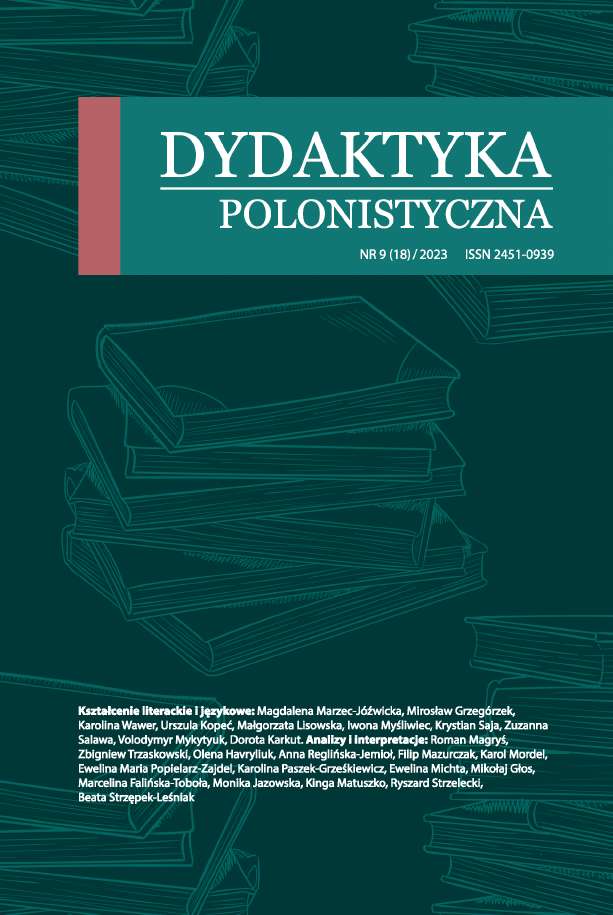Exceptional Moments Captured in Wedding Invitations – An Analysis Beyond Linguistics
DOI:
https://doi.org/10.15584/dyd.pol.18.2023.4Keywords:
wedding invitations, graphic design, analysisAbstract
The subject of the analysis primarily focused on interpreting how wedding invitations are composed. Over forty invitations created between 1990 and 2022 in the southern and western regions of Poland were analysed. They were examined, taking into account essential elements: who?, whom?, for what occasion?, when?, where?, and who?, is inviting. The conducted analysis allows to formulate the following conclusions. Those composing the wedding invitations do not declinate the names of the addressees (only 10% of the respondents correctly inflected the names, e.g., Karolinę and Sebastiana Makuchów). Over 40% of the respondents incorrectly wrote the Polish abbreviation ‘under the invocation’, which means that only more than twenty invitations did write them correctly (for example, the church under the invocation of Christ the King). Challenging to the editors of the wedding invitations was also the correct spelling of the names of sacred objects. Only 55% of the respondents remembered that in proper nouns, we capitalize the proper name (e.g., in the church of St. Catherine of Alexandria in Tyczyn). Difficult for those writing the invitations was also the correct spelling of the names of gastronomic venues or hotels. Such names can be part of a registered name, in which case we use uppercase letters, but they can also be just a description, for example, at the Ranczo restaurant in Pstrągowa. Over the span of 30 years, the graphic design of invitations has been significantly enriched, but simultaneously, a tendency towards conciseness has been observed.


